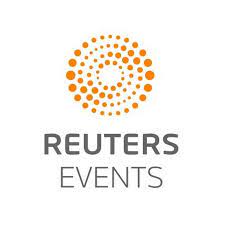KIEŁTYKA GŁADKOWSKI KG LEGAL TOOK PART IN CELL AND GENE DATA INNOVATION AND MULTI-STAKEHOLDER DATA TRANSFER WEBINAR

On 29 July 2021 KIEŁTYKA GŁADKOWSKI KG LEGAL took part in the webinar ‘Cell and gene data innovation and multi-stakeholder data transfer’ (Plan, capture and set the infrastructure for data sharing across the value chain, to optimize commercial strategy), organized by Reuters Events in participation and partnership with Salesforce. The scope of the webinar is within life science and digital health specialization that constitutes one of the core specializations of our law firm.
Some of the panelists included:
Augusto Penjasoff – Business Partner, Global Cell Therapy IT Head in BMS (Bristol Myers Squibb),
Curt Fitzgerald – Director- Service Delivery- C> in Novartis,
Gary Gabriel – Global Advisor for Healthcare and Life Sciences in Tableau,
Neary Detrick – Senior Director, Data Management & Analytics in Bluebird Bio,
and Beth Hayes as a moderator- healthcare and lifesciences business consulting – Pharma Lead, Industry Transformation (Salesforce).
The mission of Salesforce company (a partner and a participant of the webinar) is to empower companies to connect with the customers, providers of services and patients in the new and reimagined way. Salesforce serves leading organizations across the industry, including pioneers in CGT (cell and gene therapy).
Important question posed during the webinar concerned personalized medicine.
The response is that the latter is the future of the medicine (so-called a Medicine 2.0). A deliberation about personalized medicine is not a discussion about future in about 10 or 15 years. It drives a magnificent impact across the industry. There was also discussed the question of the difference between the traditional medicine and personalized medicine.
The difference is that personalized medicine does not fit well with the normal (classical) paradigms of traditional medicines. It is an entirely new, and innovative paradigm of medicine. The new paradigm, way of thinking about medicine and therapy differs from the traditionally conceived and understood medicine in the so-called mindset (considering the entirely new technology as abovementioned cell and gene therapy- CGT). In the medicine 2.0 framework the disease is not treated, but the patient is treated, taking into account all the factors that would not normally be considered.
Cell and gene therapy challenges appear and arise because this type of therapy (revolutionary new and technically highly advanced) succeeded in the medical market. Thus, the challenges are the signs of the therapy’s development.
During the registration process organizers posed a question about the main challenge in the panelists’ CGT (cell and gene therapy) strategy. The results are as follows:
27% data standardisation and interoperability challenges
27% general, overall operational readiness
15%- cross- stakeholder agreements and alignment on data sharing and ownership
13% pre-commercialization, clinical data challenges
13% other
8% post- commercialization and long-term monitoring data challenges
The panelists commented on these results as follows.
Neary Detrick emphasized that her experience is the traditional pharma related with data. In the traditional paradigm of medicine the data about patient which is not related with the disease is not important and significant. Nowadays in the contemporary personalized medicine when the commercial and manufacturing sphere are much more associated and connected to each other (because the patient has become a part of the product) the information about the patient, his data, are crucial. Thus the data standardisation and the data circulation are one of the priorities in the Bluebird Bio strategy.
Gary Gabriel expressed the view that Tableau’s perspective is directed at the patient and the patient’s point of view. They are, in Tableau, focused on the data from the dashboards, visualization and patients’ statistics. They look at how the patients’ data is organized and standardized and how the present data can help in the prospective perspective of patient’s health and therapy.
Curt Fitzgerald suggested that the challenges depends on what moment you are at your journey and growth (small, medium or large). Data challenges in Novartis are for example gene data. From the operationalization perspective, one of the biggest challenges nowadays are the productization of the information flow across the stakeholders. That’s why if the stakeholders do not have a good operationalization system which operates and delivers data to other stakeholders (in one alignment), the whole CGT strategy will collapse regardless of whether the entity is small, medium or large. This challenge is universal.
Augusto Penjasoff noted that the key challenge is a mindset. Because the change of mindset changes the perspective and entire strategy.
The panelists also discussed the stages of data development and digital strategy.
Gary Gabriel expressed the opinion that in his opinion the scalability can be a useful tool to answer the question how to reach more patients, because these therapies are new and expensive. Considering that fact some relevant and tough question arise: What is the so-called information readiness and how to explain these therapies to the patients (and even for well-educated people as physicists). We can use, for instance, data indicators (to educate more patients and more providers) and use more dashboards and indicator.
The participation in the webinar will allow the lawyers within life sciences desk of KIELTYKA GLADKOWSKI KG LEGAL to provide tailor made legal services and assistance to the clients operating in cell and gene data innovation, also having regard to our participation at EuroBiotech Congress in November 2021: https://www.eurobiotech.krakow.pl/gb/
